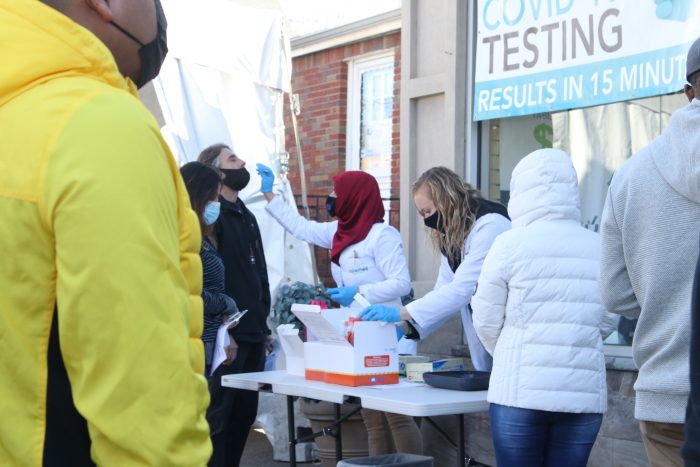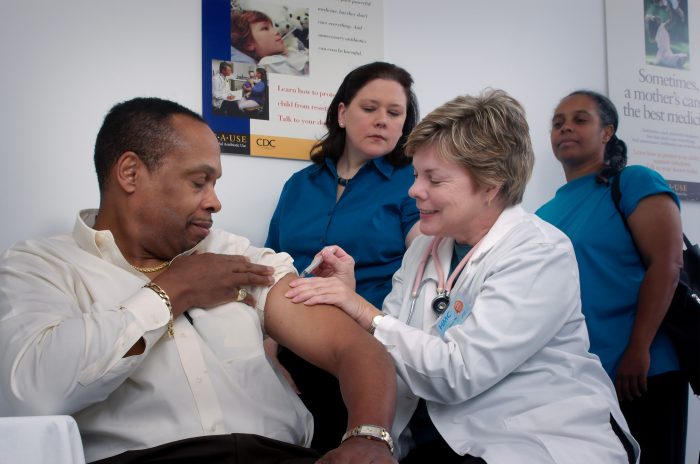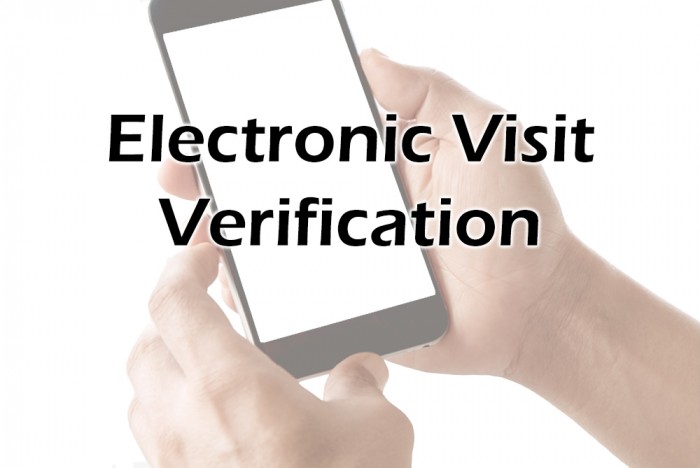The Centers for Medicare and Medicaid Services (CMS) has released an Interim Final Rule with Comment Period that will establish a new COVID-19 treatments add-on payment (NCTAP) under the Medicare Inpatient Prospective Payment System (IPPS), which is effective from November 2, 2020, until the end of the Public Health Emergency (PHE) for COVID-19. To mitigate potential financial disincentives for hospitals to provide new COVID-19 treatments during the COVID-19 PHE, the Medicare program will provide an enhanced payment for eligible inpatient cases that involve the use of certain new products with current Food and Drug Administration (FDA) approval or emergency use authorization to treat COVID-19. Comments will be accepted until the close of business on January 4, 2021.
Introducing the RCPA Quarterly Newsletter
Over the last several years, RCPA had produced a monthly newsletter – gathering articles and information for members on a more global basis. This was in addition to the daily (alerts, infos) and weekly information provided. Our statistics show that this newsletter was, in fact, read (or at least opened!) by membership on a fairly routine basis.
With the appearance of COVID, however, everything seemed to become “immediate.” The notion of a monthly newsletter seemed to become antiquated and out of touch with the needs of our members and what was happening to the minute of each day during an ongoing crisis.
As we look back at the last year, as a staff we discussed what perhaps had been missed by not providing this communication. We did not want to simply revisit producing the monthly newsletter, just because that’s the way business had always been; those times have passed.
But admittedly, there are some things that are falling through the cracks during this “everything is now” culture. So after discussion, we are moving to the creation of a Quarterly Newsletter – but not one that simply rehashes all that we have already sent out to membership. You have this information already, and by the time of our newsletter publication it may be “stale” or even outdated.
Rather, this publication will focus on topics such as the following:
- Articles from provider members and businesses on a range of topics;
- Programs / best practices / technology highlights;
- Introduction of new members;
- Content from our national association partners that has not been covered elsewhere;
- Updates from our growing Diversity, Equity, and Inclusion (DEI) Committee;
- Updates from other projects (e.g., Media Campaign) and committees;
- Member updates (e.g., honoring staff, awards given);
- Legislative tracking updates; and
- Conference and educational updates and opportunities.
Please join us in the creation of this newsletter and in assisting with the content of this new publication. We hope you will enjoy this addition to the RCPA member communication. We envision this new endeavor beginning in March 2021.
EEOC Publishes Guidance on Employer Mandatory COVID-19 Vaccination Policies (US)
Wolf Administration Urges Pennsylvanians Needing New or Renewed FBI Clearances to Obtain Them Before the December 31 Deadline
PA Department of Health Guidance Following COVID-19 Vaccination
The Pennsylvania Department of Health (DOH) provides guidance in 2020-PAHAN-541 for responding to signs and symptoms following COVID-19 vaccination in health-care personnel (HCP). Strategies are needed for health-care facilities to appropriately evaluate and manage post-vaccination signs and symptoms among health-care personnel (HCP) in order to minimize staffing disruptions and the transmission of infectious diseases, including COVID-19.
Key points in the advisory include:
- Signs and symptoms – such as fever, fatigue, headache, chills, myalgia, and arthralgia – can typically occur following COVID-19 vaccination. They usually occur within the first three days of vaccination.
- Presence of signs and symptoms consistent with SARS-CoV-2 infection that are not typical for post-vaccination signs and symptoms (i.e. cough, shortness of breath, rhinorrhea, sore throat, loss of taste or smell) should not be attributed to the COVID-19 vaccine.
- Positive viral (nucleic acid or antigen) tests for SARS-CoV-2, if performed, should not be attributed to the COVID-19 vaccine since vaccination does not influence the results of these tests.
A figure is provided to outline the steps health-care facilities should take in response to HCP who develop symptoms within the three days following vaccination for COVID-19. If you have questions about this guidance, please contact DOH at 1-877-PA-HEALTH (1- 877-724-3258) or your local health department.
CMS Issues CY 2021 Update for Durable Medical Equipment, Prosthetics, Orthotics, and Supplies Fee Schedule
The Centers for Medicare and Medicaid Services (CMS) issued Medicare Learning Network (MLN) Matters article MM12063 entitled “Calendar Year (CY) 2021 Update for Durable Medical Equipment, Prosthetics, Orthotics, and Supplies (DMEPOS) Fee Schedule”. It becomes effective on January 1, 2021. This article includes material on the data files, update factors, and other information related to the update of the fee schedule. The DMEPOS fee schedule is updated on an annual basis. For CY 2021, an update factor of 0.2 percent is applied to certain DMEPOS fee schedule amounts. Additional details specific to supplies are provided in the article.
Wolf Administration Reminds Pennsylvanians Experiencing Anxiety, Loneliness, and Stress Amidst Holiday Season that They Are Not Alone
FOR IMMEDIATE RELEASE
December 17, 2020
Harrisburg, PA – The Wolf Administration issued recommendations to help individuals and families stay safe during the 2020 holiday season. Families are encouraged to hold virtual gatherings in order to mitigate the risk of COVID-19 transmission. The Centers for Disease Control and Prevention (CDC) indicates that small household gatherings are a large contributor to the rise in COVID-19 cases, and exposure at these events can contribute to the spread once the holidays are over.
The Administration strongly recommends against participating in holiday gatherings with individuals or groups outside of your household. This advice is especially pertinent for individuals who are at increased risk for severe COVID-19 infection such as older adults, individuals with certain medical conditions, and any resident of a long-term care facility.
“As COVID-19 cases continue to rise, and as we enter the flu season, it’s important that we continue to take this virus seriously. That means continuing to wear masks and forego social gatherings, even holiday gatherings, to protect those we love,” said Department of Human Services (DHS) Secretary Teresa Miller. “There are massive surges of positive COVID-19 cases in the majority of Pennsylvania counties, and protecting those most vulnerable to severe COVID-19 infection is critical. I urge everyone to remember the risks and do what they can to keep each other, their loved ones, and vulnerable people safe during this holiday season.”
The Departments of Health and Human Services have issued guidance to all long-term care facilities and nursing homes; they should review it with their residents to make sure that they are safe over the holidays. Those who are at increased risk for severe illness from COVID-19 should avoid in-person gatherings with people who do not live in the same household.
Addressing the Needs of Older Adults During the Holidays
Under normal circumstances, the holiday season can be a stressful time for many people, including older adults. However, this is a holiday season like no other because it is happening during what may be the most challenging year many have ever faced. This fact is particularly true for older adults who have been struggling throughout this year because of the lack of both family and personal connections.
The Pennsylvania Department of Aging’s Office of the Long-Term Care Ombudsman continues to connect with long-term care residents through virtual meetings via Zoom, Facetime, or phone calls. The office has provided funds to local ombudsman programs through the CARES Act to use for technology and outdoor visitation, weather permitting.
The Ombudsman’s next Virtual Family Council meeting to support families of long-term care residents will be held on Tuesday, December 29, 2020 from 4:30 pm – 6:00 pm. PEERs (Pennsylvania Empowered Expert Residents) will join this meeting to discuss the COVID-19 pandemic from the long-term care resident’s perspective. PEERs are individuals living in long-term care settings who have been trained to advocate to improve the quality of life in their homes. To attend, email Jay Rotz and use “Virtual Family Council” in the subject line to receive a meeting link and instructions.
During December and January, the Pennsylvania Council on Aging’s (PCoA) Social Isolation Task Force is holding free virtual small-group interactive sessions that are designed to help older adults safeguard their mental, spiritual, and physical health. Now more than ever, these tips and reminders are critically important. These sessions will also give seniors the chance to maximize the positive impact of the council’s interactive “Strengthening Older Lives Online (SOLO)” guide. Sign up for a session here.
The Department of Aging and Pennsylvania Council on Aging have worked on solutions to help older adults meet the many challenges of this pandemic, including social isolation, throughout its duration. These efforts have resulted in the development of resources and partnerships to help older adults connect with loved ones and stay mentally and physically healthy during the COVID-19 pandemic. Aging and its 52 Area Agencies on Aging, covering the commonwealth’s 67 counties, have continued to operate during the pandemic and offer virtual activities, including health and wellness programs. Find your local area Agency on Aging here.
These resources include an online COVID-19 resource guide for older adults, a new health and wellness guide titled “Strengthening Older Lives Online (SOLO)”, and a family support forum called the Virtual Family Council, which holds bi-weekly virtual support meetings for families with loved ones who are living in long-term care facilities. Information about all of these resources can be found on the Department of Aging’s website. More information on the Virtual Family Council can be found here. The SOLO guide can be found here.
“Since the start of this pandemic, we have worked diligently to address the needs of older Pennsylvanians, especially those who are at risk of being or who are actually socially isolated. The forced isolation of COVID-19 has intensified this problem. As a result, we have adapted our services to provide support and resources to help Pennsylvania seniors maintain good mental and physical health, and we want to ensure that they are aware of these services, especially during this holiday season,” said Secretary of Aging Robert Torres.
Mental Health
People who experience feelings of anxiety or depression may experience more distress during the holiday season than during normal times. Given the challenges we are all currently facing, all Pennsylvanians should take extra care to be mindful of their mental health and tend to their overall health and wellness during this time. Check in with yourself, and be honest about how you are feeling with yourself and your support network. If you need someone to talk to or a little extra support, help is available.
DHS’s mental health support and referral helpline, Persevere PA, is available 24/7 and is a free resource that is staffed by skilled and compassionate caseworkers who are available to counsel Pennsylvanians who are struggling with anxiety and other challenging emotions. The helpline caseworkers can refer callers to community-based resources that can further help to meet individual needs. Pennsylvanians can contact Persevere PA at 1-855-284-2494. For TTY, dial 724-631-5600.
If you or someone you love is in crisis, the National Suicide Prevention Lifeline is available by calling 1-800-273-8255. The hotline is staffed 24/7 by trained counselors who can offer free, confidential support. Spanish speakers who need immediate assistance can call 1-888-628-9454. Help can also be accessed through the Crisis Text Line by texting “PA” to 741-741.
A Plain Communities Helpline is also available through WellSpan at Philhaven at 717-989-8661. The Plain Communities Outpatient Clinic provides high quality mental health care that is sensitive to the values of the plain sect community.
The stress and loneliness of this time may also make things harder for those who are currently battling a substance use disorder, but treatment and resources are available to help. The Department of Drug and Alcohol Programs’s Get Help Now helpline can be reached at 1-800-662-HELP.
For more information on the latest guidance on COVID-19, visit this webpage.
MEDIA CONTACT: Erin James
EVV Compliance Reminder for OBRA Waiver and Act 150 Participants
DOH Announces Week Three of Regional Testing Extension Across the Commonwealth














